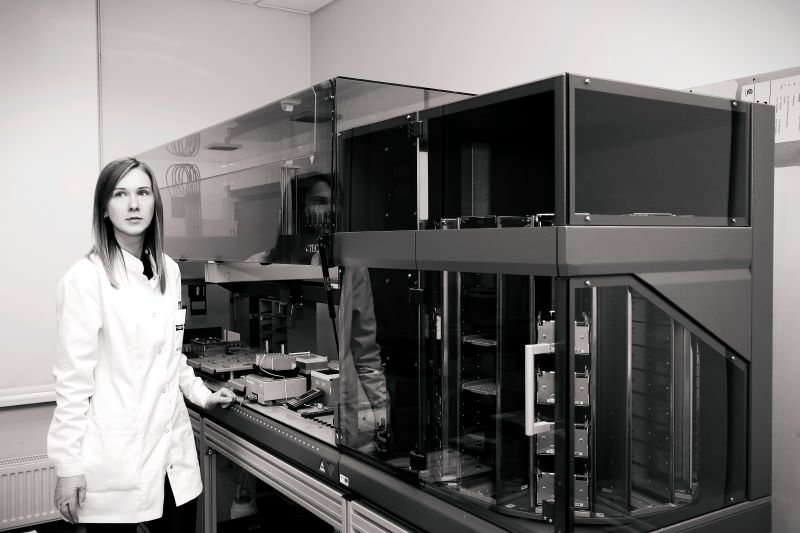Genetic risks and challenges in breast and ovarian cancer diagnosis: a study on the impact of BRCA1 pathogenic variants
Breast and ovarian cancers are among the most common malignancies in women, posing a significant healthcare challenge both in Latvia and worldwide. Every year, around 1,200 new cases of breast cancer and 300 cases of ovarian cancer are diagnosed in our country.
Approximately 5–10% of breast cancer cases and 10–15% of ovarian cancer cases are hereditary and are associated with pathogenic genetic variants, most commonly in the BRCA1 and BRCA2 genes. Studies have shown that the risk of developing cancer varies between women with BRCA1 pathogenic variants and only a minority of these women will develop breast or ovarian cancer in their lifetime, making accurate risk assessment and genetic counselling difficult.
Currently, a patient's own or their family's medical history and age-related criteria are considered to determine the risk of breast and ovarian cancer, which is the basis for the decision to perform genetic testing. In Latvia, the most common inherited BRCA1 pathogenic variants specific to the Latvian population and geographical region are being tested for. As prophylactic procedures are often invasive and can have severe psychological and physiological consequences, it is important to assess the individual cancer risk of each woman with a BRCA1 pathogenic variant as accurately as possible.
Improving risk prediction would help to identify women who are at high risk of cancer and therefore need early clinical intervention, and women who are at low risk of cancer and could postpone preventive procedures.
The aim of Egija Berga-Švītiņa, assistant, researcher and PhD student at RSU, was to contribute to the research on potential genetic factors influencing breast or ovarian cancer risk in women diagnosed with one of the two most common BRCA1 pathogenic variants in the Latvian population. Additionally, she wants to study and improve the diagnosis and prevention of hereditary breast and ovarian cancer in Latvia in the future by helping doctors to counsel women with BRCA1 pathogenic variants and help them to make informed decisions about their health.
 RSU PhD student Egija Berga-Švītiņa carrying out scientific research. Photo from private archive
RSU PhD student Egija Berga-Švītiņa carrying out scientific research. Photo from private archive
The study employed a variety of methods, including the candidate gene approach, which is a genetic research method used to identify associations between specific genes and specific diseases or phenotypes, and genome-wide association analysis (GWAS). This is used to screen the entire genome for genetic variants associated with a specific disease or trait without prior gene selection.
In addition, the performance of two genome-wide polygenic risk models (PRS) was compared to estimate the overall genetic risk in women with BRCA1 pathogenic variants.
Egija Berga-Švītiņa will defend her doctoral thesis “Identifying Genetic Factors Associated with Breast or Ovarian Cancer Risk in BRCA1 Pathogenic Variant Carriers” on 20 September 2024. Read more



